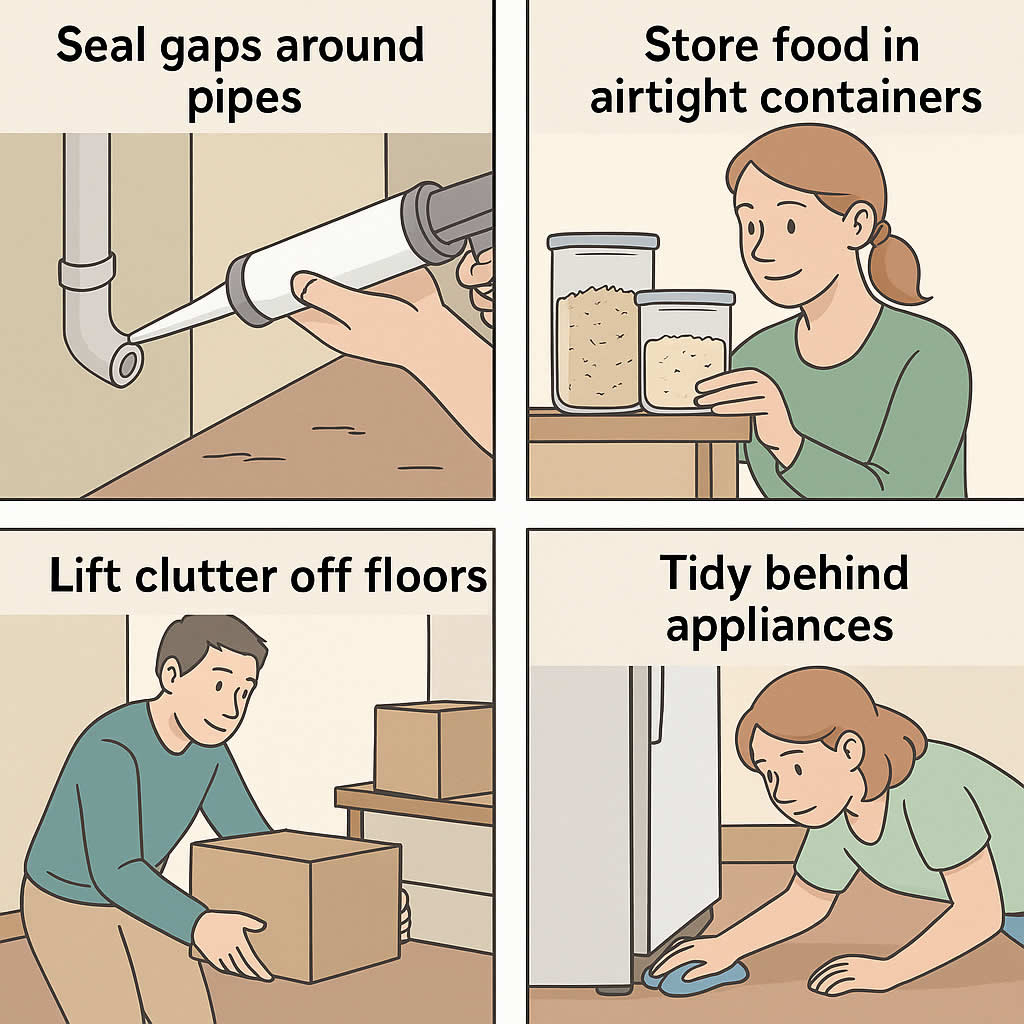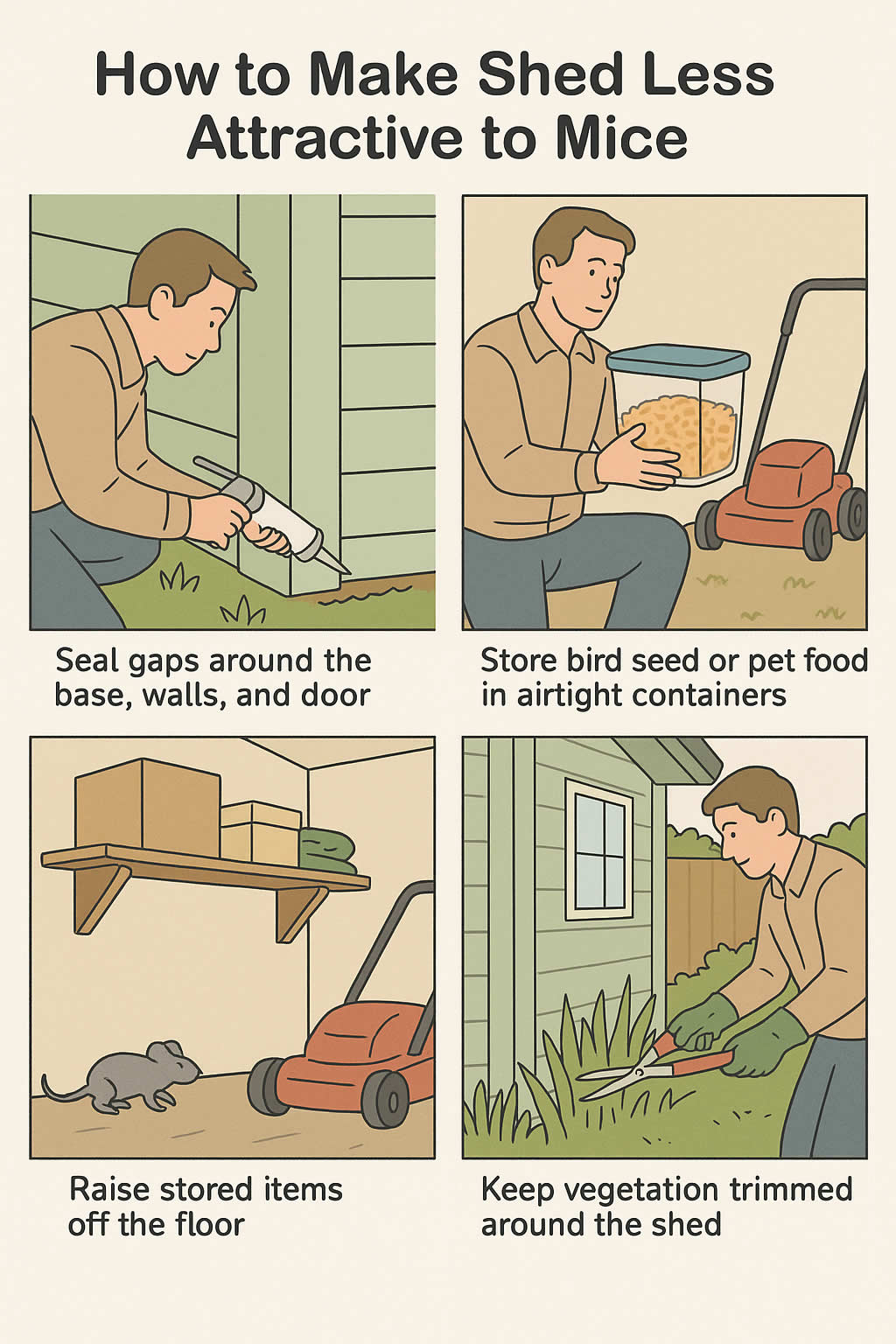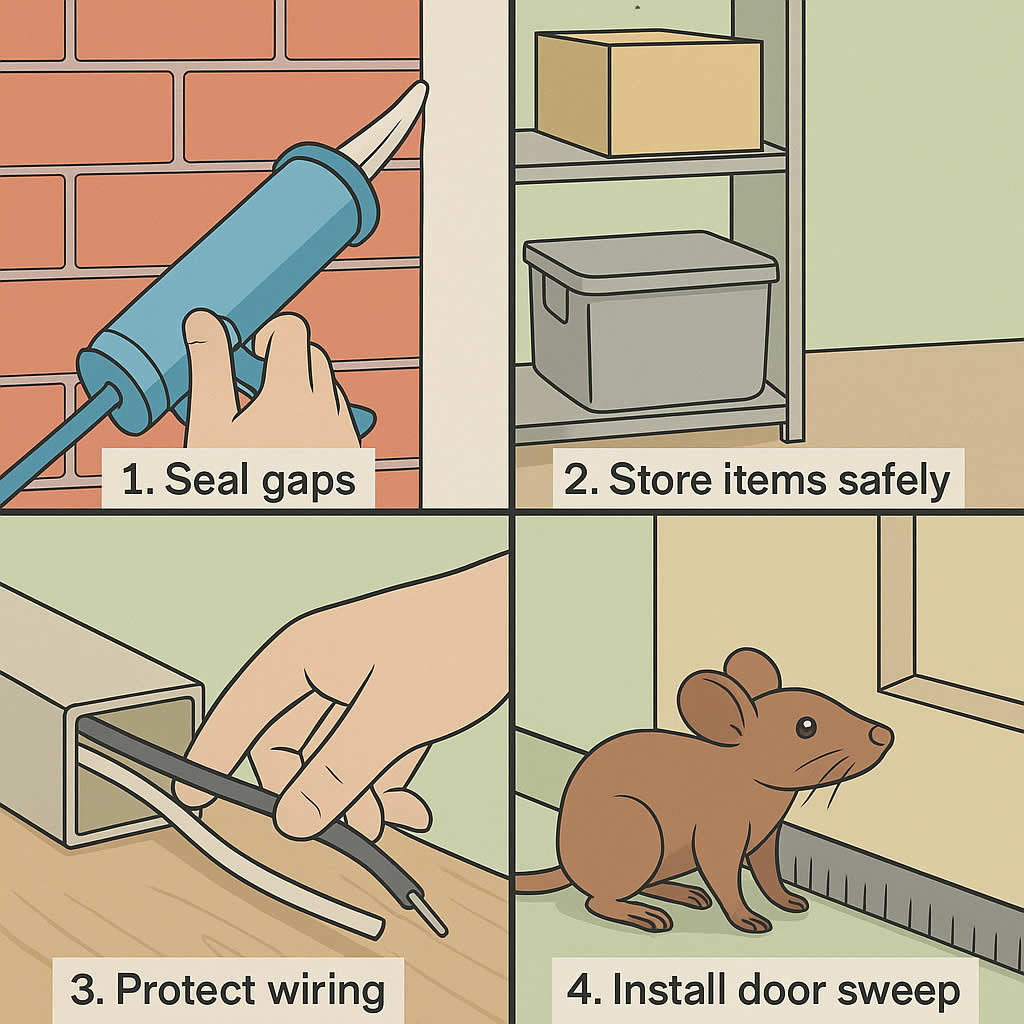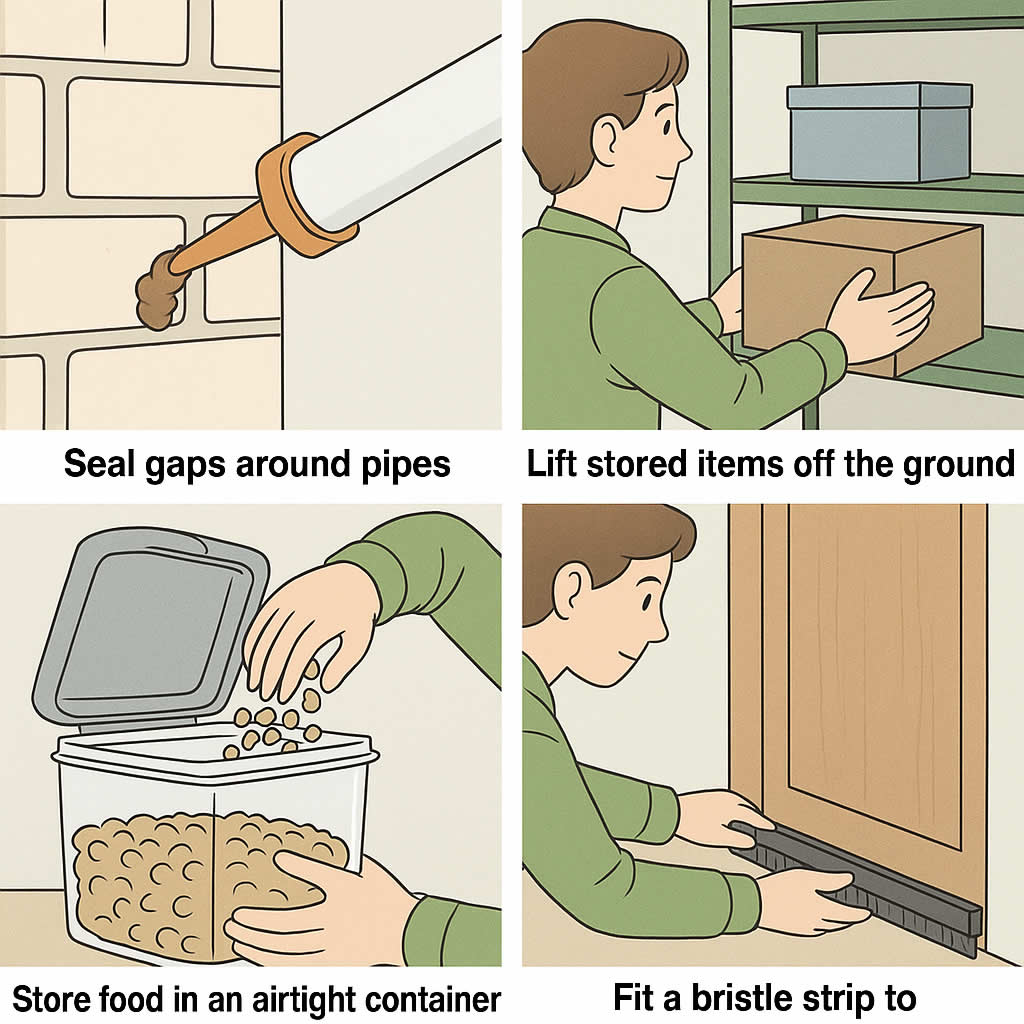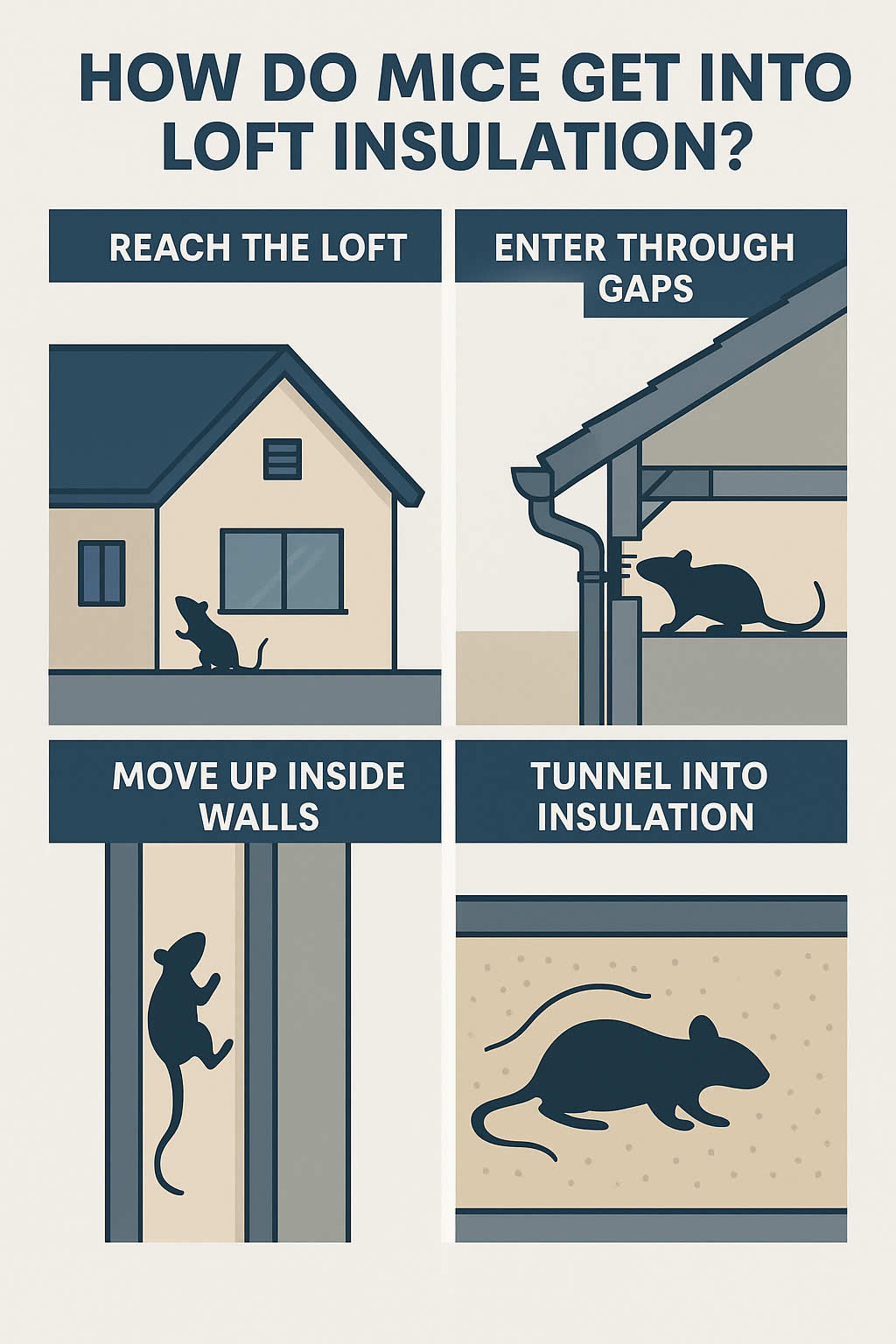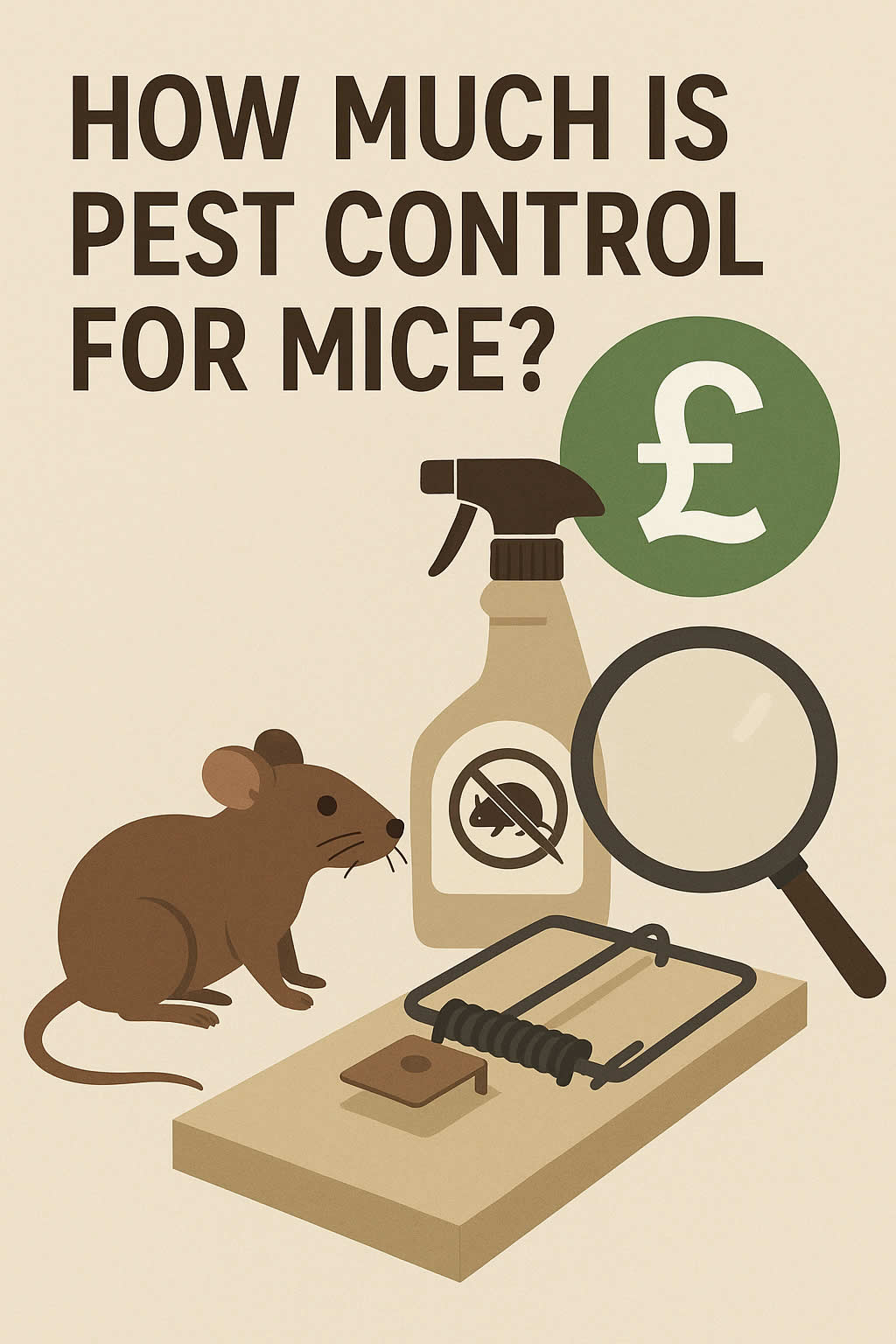Related Queries
ToggleIf you’ve ever spotted more than one mouse darting around your home, you might’ve wondered—what’s the proper name for a bunch of them? You’re not alone. It’s something that surprises a lot of people.
What Is A Group Of Mice Called?
The answer? A group of mice is called a mischief.
It makes sense, really. They move fast, sneak into things they shouldn’t, and leave behind quite a mess if you don’t catch them early. It’s a name that reflects exactly how they behave—restless, curious, always up to something.
But depending on where and how they live, a few other terms might come up too. Sometimes people refer to a group of mice as a nest, especially when talking about where they sleep, breed, or raise their young. If you’re reading something more dramatic—say, about an infestation—you might see plague or horde used as well. Those are less common in everyday conversation, but they crop up in certain contexts.
So whether you’ve got one or several, knowing the right term adds a bit of insight. But names aside, it’s what they do—and how they live—that really matters.
How Long Do Mice Live?
Now, onto something just as interesting—their lifespan.
Mice don’t live long. In the wild, they tend to survive for about a year. Indoors, where there’s less risk from predators and weather, they can live closer to two years. That doesn’t sound like much, but what makes them a concern isn’t how long they live—it’s how fast they breed.
A single female can give birth up to 10 times a year. And each litter? That’s usually between 5 to 12 babies. Within just a few months, those babies are old enough to have more young of their own. You can see how quickly things spiral out of control.
That’s why, when you spot signs of mice, it’s not something to leave for later. Even if you’ve only seen one, chances are high there are more nearby—or more on the way.
How Do Mice See and Hear?
Mice don’t rely on their eyes as much as you might think. Their eyesight isn’t great—especially during the day. But they do much better in dim light, which is why they’re usually active at night or early morning.
What they lack in vision, they make up for with other senses.
Their hearing is incredibly sharp. They can pick up on high-frequency sounds that humans can’t hear. This helps them detect movement, sense danger, and communicate with each other.
Their sense of smell is even stronger. It helps them find food, avoid threats, and pick up on scents left by other mice. They use these scent trails to navigate and understand their environment. Smell plays a big role in how they interact with each other—marking territory, attracting mates, and identifying relatives.
They also rely heavily on touch. Their whiskers are super sensitive and help them feel their way around, especially in the dark. Whiskers pick up on vibrations, surfaces, and airflow, which is how they move so quickly without bumping into things.
In short, mice sense the world in a way that’s completely different to us. And that’s part of what makes them so tricky to catch.
How Do Mice Squeeze Through Tiny Gaps?
If you’ve ever wondered how mice end up behind the fridge or under the floorboards—it’s because their bodies are built for squeezing into small spaces.
Their bones are flexible. Their ribcages aren’t fixed the way ours are, so they can compress their bodies to fit through gaps as narrow as 6mm—about the size of a pencil or a 5p coin.
They don’t need to chew their way in either. If they find even the tiniest opening around a pipe, skirting board, or under a door, they’ll push through it with ease. Once they’re in, they move fast and quietly, making it hard to track them down.
They can also climb rough surfaces and jump up to 30cm. That’s how they reach cupboards or countertops. So even if your food’s off the floor, it’s not always out of reach.
That’s why sealing your home properly is one of the most important steps when you’re trying to keep mice out. It’s not just about closing big gaps—it’s about checking every corner and crevice.
What Should You Do If You Have Mice?
Finding signs of mice in your home can feel overwhelming—but you’ve got a few options.
Start with blocking entry points. Go around your home and check near pipes, air bricks, roof edges, and anywhere there might be a gap. Use steel wool or filler to close them up. Mice can’t chew through metal, so this works better than foam or wood.
Clean up food sources. Mice are always hunting for crumbs, leftovers, or rubbish. Store everything in sealed containers and take out the bin often. Don’t leave pet food out overnight, and make sure cupboards are wiped down regularly.
Set traps if needed. You’ve got choices here—snap traps, humane cages, or electric models. Place them along walls, under units, and in places where you’ve seen droppings or gnaw marks.
Avoid using poison unless necessary. It’s dangerous for pets and kids, and it doesn’t always work straight away. If a mouse dies in the walls, the smell can linger for days. If you do go down this route, make sure you use bait boxes and follow all safety instructions.
Get help from professionals if things escalate. If traps aren’t working or you’re seeing more signs over time, pest control teams can get to the root of the problem and deal with it properly.
Why You Should Act Quickly
Mice might look harmless, but they cause real problems. Once they’re inside, they damage more than just food. They chew wires, tear insulation, ruin furniture, and leave droppings everywhere.
Their urine and faeces can carry bacteria that contaminate surfaces. In some cases, they can even trigger allergic reactions. And with how fast they breed, a few mice can turn into a full infestation in just a few weeks.
The longer they stay, the more damage they do—and the harder they are to remove. So the sooner you act, the better the outcome.
Overview: The Names Behind the Noise
Let’s go back to what we started with—what to call them.
You’ve got a few options depending on how many you’ve seen and what the situation is:
- Mischief – A playful, fitting term for a group of mice scurrying about, causing disruption.
- Nest – A softer name that reflects how mice live together, raise young, and build hidden spaces.
- Kindle – That’s what you call a litter of baby mice. It’s used less often, but it’s the correct term.
- Plague or Horde – These terms come up when you’re talking about large numbers. They’re more dramatic and usually describe situations where mice are seen as pests, not just wildlife.
Knowing these names won’t stop mice from turning up, but it’s useful to understand how they live. It helps you think about the problem differently—and tackle it properly.
Final Thoughts
Mice aren’t just a minor nuisance. They’re quick, clever, and well adapted to finding ways into your space. They live quietly, multiply rapidly, and create problems fast.
But once you know how they behave—how they see, hear, move, and nest—you’re in a much better position to deal with them. You can seal up entry points. You can remove what attracts them. You can stop them from getting in—and act fast if they already have.
Whether you’ve seen one or a group, don’t wait too long to do something about it. They don’t leave on their own. But with the right approach, you can keep your home protected and your space rodent-free.
Are you looking for pest control in West Sussex? Get in touch with us and a local pest removal company will be in touch.



